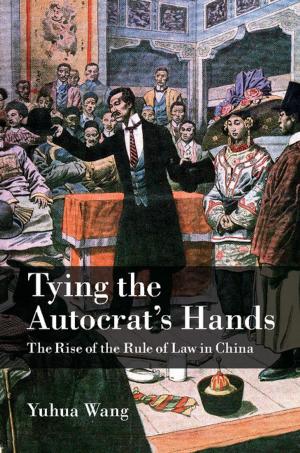Indigenous Rights in the Age of the UN Declaration
Nonfiction, Reference & Language, Law, International, Social & Cultural Studies, Political Science| Author: | ISBN: | 9781139411714 | |
| Publisher: | Cambridge University Press | Publication: | May 24, 2012 |
| Imprint: | Cambridge University Press | Language: | English |
| Author: | |
| ISBN: | 9781139411714 |
| Publisher: | Cambridge University Press |
| Publication: | May 24, 2012 |
| Imprint: | Cambridge University Press |
| Language: | English |
This examination of the role played by the United Nations Declaration on the Rights of Indigenous Peoples (UNDRIP) in advancing indigenous peoples' self-determination comes at a time when the quintessential Eurocentric nature of international law has been significantly challenged by the increasing participation of indigenous peoples on the international legal scene. Even though the language of human rights discourse has historically contributed to delegitimise indigenous peoples' rights to their lands and cultures, this same language is now upheld by indigenous peoples in their ongoing struggles against the assimilation and eradication of their cultures. By demanding that the human rights and freedoms contained in various UN human rights instruments be now extended to indigenous peoples and communities, indigenous peoples are playing a key role in making international law more 'humanising' and less subject to State priorities.
This examination of the role played by the United Nations Declaration on the Rights of Indigenous Peoples (UNDRIP) in advancing indigenous peoples' self-determination comes at a time when the quintessential Eurocentric nature of international law has been significantly challenged by the increasing participation of indigenous peoples on the international legal scene. Even though the language of human rights discourse has historically contributed to delegitimise indigenous peoples' rights to their lands and cultures, this same language is now upheld by indigenous peoples in their ongoing struggles against the assimilation and eradication of their cultures. By demanding that the human rights and freedoms contained in various UN human rights instruments be now extended to indigenous peoples and communities, indigenous peoples are playing a key role in making international law more 'humanising' and less subject to State priorities.















